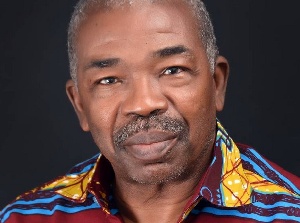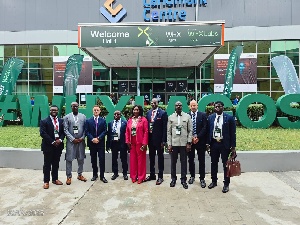- Home - News
- Elections 2024
- News Archive
- Crime & Punishment
- Politics
- Regional
- Editorial
- Health
- Ghanaians Abroad
- Tabloid
- Africa
- Religion
- Photo Archives
- Press Release
General News of Tuesday, 15 April 2025
Source: www.ghanawebbers.com
Ghana’s ‘Fifth Columnists’: The looming storm being reengineered in the mould of the ‘Mighty Minority’ remnants
A "fifth columnist" secretly supports an enemy group. They work to undermine their own country through sabotage or espionage.
The term was created by General Emilio Mola during the Spanish Civil War (1936-1939). He led four columns of troops toward Madrid and claimed he had a fifth column of Franco sympathizers in the city.
American author Ernest Hemingway also popularized the term in his writings. Fifth column activities include infiltrating governments, spreading misinformation, and engaging in sabotage.
Synonyms for "fifth columnist" include traitor, spy, treasonist, and saboteur. The term has appeared in popular culture and intelligence operations.
Loosely defined, a fifth column undermines a larger group from within. This can happen during political transitions or elections when one party tries to compromise another.
For 25 years, outgoing governments have hired supporters before leaving office. These last-minute appointments burden incoming administrations with bloated salaries.
Such actions create a "Third Reich" effect. New hires may leak confidential information or undermine state-owned enterprises.
This phenomenon began with the NADAA government before losing the 2024 elections. Their decisions bloated various government arms ahead of their exit.
The actions of the "Mighty Minority" in Parliament reflect this trend. They create distractions during new government initiatives to undermine leadership.
Last-minute hiring before January 7, 2025, raises concerns about loyalty and espionage. New employees might report falsehoods to make the sitting government unpopular.
Recent actions by Hon. Rev. John Ntim Fordjour have caused apprehension in politics. His background includes engineering and politics but raises questions about honesty as a minister of the Gospel.
Concerns grow over an alleged deep state within the current government structure. This refers to influential members manipulating policy behind the scenes without accountability.
Deep states consist of non-elected officials influencing government decisions illegally. Their power comes from experience and relationships that form a super-government.
Current situations suggest deep state involvement due to last-minute appointments made by NADAA's past government. This creates an environment for secret manipulation of initiatives post-2025.
The dismissal of former Electoral Commissioner Charlotte Osei appears part of this plot. Her replacement with Jean Adukwei Mensa raises concerns about electoral integrity amid allegations against top executives affiliated with NPP.
Ignoring these issues will not make them disappear; they must be addressed now to avoid future problems for Ghana's governance.











